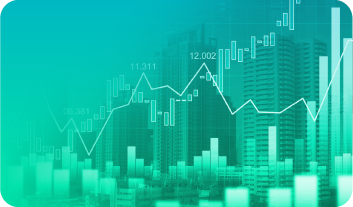APPLIED GENERAL EQUILIBRIUM
Location
T.B.C
Contact
011-1194 2707 (Nabila)
Introduction to the Course
Computable general equilibrium (CGE) models are increasingly being used for analyzing economywide impacts of various policies. These models are useful for analyzing issues where inter-industrial and inter-agent linkages are crucial. CGE models are large numerical models which combine economic theory with real economic data in order to derive computationally the impacts of policies or shocks in the economy. CGE models fit economic data to a set of equations which aim to capture the structure of the economy and behavioral response of agents (firms, households, government). This provides a framework to simulate policy changes and trace the impact on key economic variables, including income and expenditure flows.
This introductory course is designed to introduce participants with information and skills to develop an applied general equilibrium model for economic policy analysis. It is a necessary for the participants of this course to have foundations in input-output analysis. If not, participants that would like to take this course are advised to enroll for the introductory course for input-output analysis.
Topics Covered
The course is divided into two parts. The first part introduces the fundamental concept of general equilibrium approach and the social accounting matric (SAM) database that commonly used in practical for developing a computable general equilibrium model. The second part applies the SAM to calibrate all equations and market clearance conditions. Microsoft Excel and General Algebraic Modeling System (GAMS) will be used in the practical and hand-on sessions.
Who Should Attend?
- Government officials involved in the design & implementation of economic, social and environmental policies;
- Researchers and business analysts from private-sector entities and non-governmental organisations
- Academicians, research officers and graduate students from private and public universities
Fee Includes
- Training materials
- Buffet lunch
- Refreshments
- Certificate of attendance
Instructors

Assoc. Prof. Dr. Mohd Yusof Saari (Yusof)
Yusof is an Associate Professor at School of Business and Economics at Universiti Putra Malaysia. Recently, Yusof serving as the Center for Future Labour Market Studies’ Chief Economist at the (EU-ERA). Yusof holds a PhD degree in Economics from the University of Groningen, the Netherlands and has written extensively on issues related to development economics with specific applications of input output, social accounting matrix (SAM) and applied general equilibrium models. Yusof also one of the prominent speakers and writers in the Malaysian news and printed media.

Dr. Daaniyall Abd Rahman (Daani)
Daani is a Senior Lecturer at the School of Business and Economics, Universiti Putra Malaysia (UPM) and a Senior Economist at the Centre for Future Labour Market Studies (EUERA). He is also the Managing Director for the Review of Labour Market Policy (RLMP), official journal for EU-ERA. He studied economics in UPM and obtained his PhD at the University of Sydney, Australia in 2018. His research mostly related to application of economic wide modelling for sustainability analysis that portrays an inclusive policy making in term of economic, social and environment. Recently, he focuses more on labour market analysis pertaining to external market impact, regional labour market
dynamics, productivity and growth that employs macroeconomic models.
In Collaboration with













